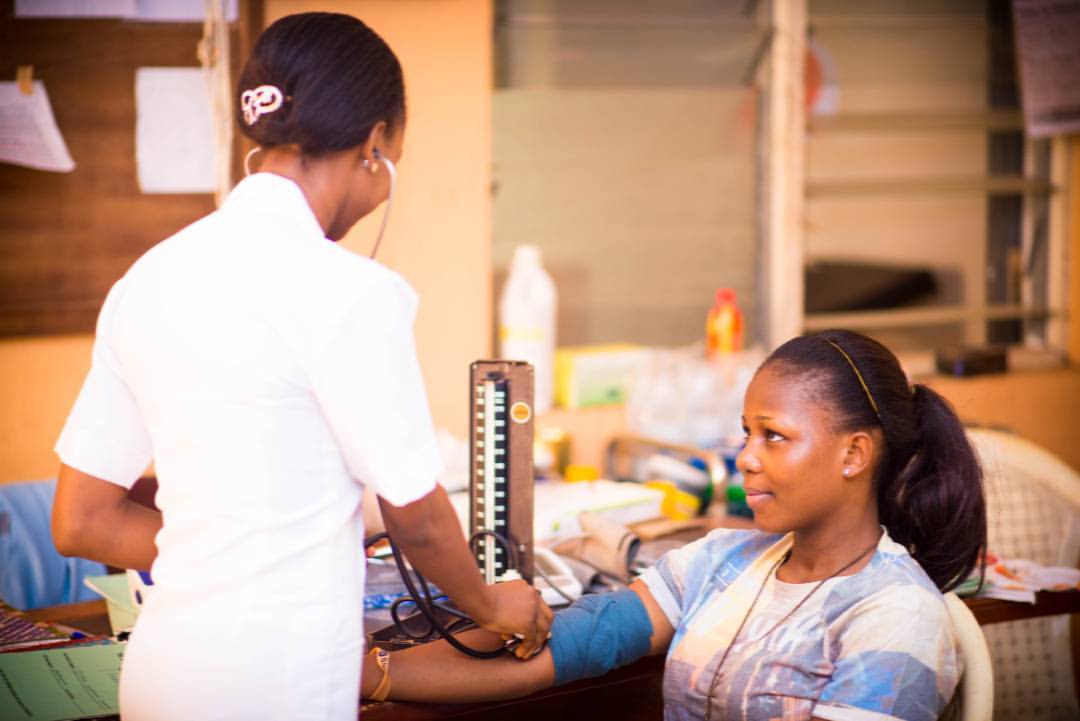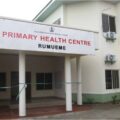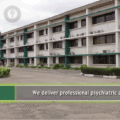By Njide Ndili*
Nigeria’s health indices stay concerning/stubbornly poor. Life expectancy stands at 54 years, one of the lowest in the world, while thelatest maternal mortality rate of 576 per 100,000 live births is the fourth highest globally. Non-communicable diseases, such as hypertension, diabetes, cancer, and malnutrition, caused nearly a third of all deaths in the country at the last count.
Many challenges underpin these statistics, including:
- The three tiers of government are dedicating too low a share of their budgets to the health sector, resulting in out-of-pocket expenses for patients,
- The small fraction of primary health care centers nationwide that are functional aren’t visited much,
- Healthcare professionals are migrating in high numbers,
- Few Nigerians have health insurance.
Another government, another reform
Nigeria’s newly elected federal government has pledged to revive the health sector, introducing the National Health Sector Renewal Initiative Program late last year.
On paper, it contains all the right ingredients to turn around Nigeria’s poor health indices. For example, the program provides for increased investment and allocation of funds to the sector, increasing research, and ramping up the local production of health products to improve health security through a Healthcare Industrialisation Program.
It also provides for a Basic Healthcare Provision Fund (BHCPF) to enhance access to essential health services and advance Nigeria’s progress in achieving Universal Health Coverage. In addition to the Program, the federal and state governments signed a Health Renewal Compact.
But many rightly ask: What makes this reform different from previous attempts?
The missing link
In our view, the federal government’s renewed attention presents an opportunity for positive change in the health sector.
This will require a galvanizing of resources, including financial and technical resources, by everyone involved. Financial resources include a budget that meets Nigeria’s commitments to the 2001 Abuja Declaration (15% of the national budget dedicated “to improve the health sector”, compared to about 5% in Nigeria’s latest one) and releasing funds for the BHCPF.
Technical resources are critical, too. These include the expertise of role-players such as PharmAccess, who have created pockets of change in the healthcare sector and gained valuable insights along the way.
This is a missing link in the push for reforms – without a critical review of lessons learned over time and across interventions, the same stumbling blocks will keep tripping us up.
PharmAccess’ track record
Health insurance. PharmAccess partnered with the governments of Lagos and Kwara Statesto improve access to health through health insurance. During the pilot phase (2007-2016), Kwara State was the first to digitize its claims process. The assistance enabled Kwara State to successfully transition from a community-based health insurance scheme to a state social health scheme.
Training. In collaboration with the prestigious Enterprise Development Center of the Lagos Business School, PharmAccess has provided training for healthcare providers through theHealthcare Management Program.
Refurbishing health facilities. The Access to Finance initiative enabled the private sector to refurbish 15 dilapidated primary healthcare facilities in hard-to-reach communities in Delta State where the project was piloted.These facilities have provided quality care to an estimated 200,000 people in the surrounding communities.
Digital solutions. PharmAccessdeveloped and deployed a mobile app for TB screening (called the Mobile Application for Tuberculosis Screening, or MATS) in collaboration with the National Tuberculosis and Leprosy Control Programme. Though Nigeria is estimated to have the sixth highest number of TB casesworldwide, the country accounts for 6.2% of the 3.1 million cases thought to be missed globally. The MATS tool enabled over two million people in 22 states in Nigeria to be screened for TB in under two years. This type of novel digital solution is one effective way to bridge the gap in the early detection of TB cases and can be expanded to cover other diseases and health system matters.
Improving quality. SafeCare, a stepwise quality improvement approach developed by PharmAccess, has been introduced in select facilities in both the public and private sectors in Nigeria. Visiting the Federal Medical Center Ebute Metta – which has reached the next-highest SafeCare level – shows the transformation that can be achieved in government-owned tertiary institutions. To improve health service delivery, such quality improvement programs need to be institutionalized throughout the entire healthcare system.
Universal Health Coverage. PharmAccess Foundation in partnership with Global Fund has contributed to the implementation of health financing models by leveraging mobile technology and pooled funds in the fight against HIV, TB and malaria in a bid to promote UHC. The former Commissioner for Health of Lagos State, Dr Jide Idris in a press statement recognized Global Fund and PharmAccess as trusted partners in the grant
implementation for the purpose of optimizing health insurance in the state using digital technology.
Maternal and Neonatal Health. PharmAcces collaborated with Merck Sharp Dohme (MSD) for Mothers and the Lagos State Health Management Agency (LASHMA) to launch the MomCare (Smart Contracts for Maternity Care) project. The MomCare project combines SafeCare certification and benchmarking providers, with LASHMA IT Platform and Mother Journey (a mobile application to track pregnant women along the care process) to imptove maternal and child health outcomes.
Support for Regulation Strengthening. PharmAccesshas provided supportfor Regulation strengthening including to the Pharmacists Council of Nigeria for improving peer supervision and reduction in the incidence of fake drugs.
Creating a body of critical knowledge
Identifying, unpacking, and deconstructing the impact of such interventions and, importantly, the lessons learned can help to positively steer healthcare reforms such as the one currently on the cards. Over a series of blogs in the coming months, we will continue to review PharmAccess’ initiatives.
The goal is clear: to identify good practices, extract lessons learned, and note actual and potential bottlenecks. We hope to create a body of critical knowledge that can be appliedto improve Nigeria’s dire health outcomes.
*Njide Ndili is the Country Director for PharmAccess Foundation Nigeria Office





